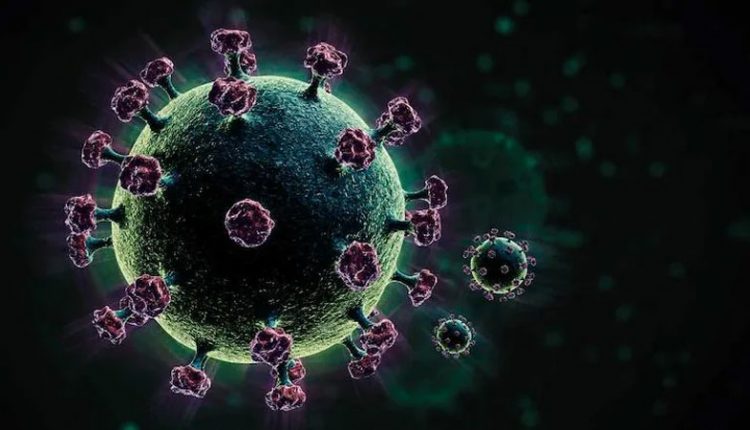- Reviews the Preparedness to address Needs and Challenges of current phase of COVID Pandemic
- 5 Critical Areas of Action Highlighted
New Delhi / Kalinga Voice
Union Health Secretary Shri Rajesh Bhushan along with Member (Health), NITI Aayog Dr. Vinod K. Paul chaired a high-level meeting today with the Eastern States of Assam, West Bengal, Odisha, Bihar and Jharkhand. The review meeting assessed the arrangements put in place by these eastern states for containment and management of the COVID19 pandemic. Evidence suggests that the pandemic is moving eastward and a rise has been observed in the number of daily cases in these states along with rising mortality.
Dr. Balram Bhargava, Secretary (Health Research) & DG ICMR, Dr (Prof) Sunil Kumar, DGHS, Ms. Arti Ahuja, Additional Secretary (Health), Dr. Sujeet K. Singh, Director, NCDC were present along with Principal Secretary (Health), Mission Director (NHM), and State Surveillance Officer of the concerned states.
Five critical areas of action were discussed for addressing the needs and challenges of recent phase of the COVID 19 pandemic in these states, which has led to an unprecedented surge in number of daily cases and increased mortality.
Underscoring the critical importance of human resources in providing health services and clinical management of the severe COVID patients in the hospitals, the States were advised to ensure that performance linked payments of the Community Health Officers (CHOs) at the Ayushman Bharat Health & Wellness Centres (HWCs) and the incentives to the ANMs and other health workers are paid timely. The NHM funds to the states may be utilized for this purpose. In addition, a slew of decisions have been taken recently by the Union Government whereby the services of final year MBBS students; those students that are yet to take the NEET examination (which has been postponed); final year nursing students; and internees can be utilized for COVID related healthcare work.
Starting today, the list of districts across the country where the positivity rate is above 20% has been displayed on the website of the Health Ministry. This list is dynamic and will be updated on a regular basis. States are required to undertake focussed efforts in these districts regarding testing; home isolation of the infection people; measures to prevent crowding and intermingling of people to curb spread of infection; in addition to other containment activities. During the periods of stringent restricted movement in the states, the time could be utilized for augmentation of hospital infrastructure including construction of makeshift hospitals; attaching hotels to hospitals; and field hospitals.
It was pointed out to the States that last year an advisory was shared with them enlisting the broad norms of oxygen usage in clinical management of hospitalized patients. This was subject to state-wise customization. The oxygen requirement for the different categories of patients receiving clinical care in hospitals was also detailed in the advisory. An oxygen audit is also required to be done by all the states. Pointing that barring a few states, others have not undertaken the exercise, the states were reminded to undertake this process. With the aim of having one PSA plant in every district, 1000 PSA plants are being planned across the country. The states were advised to identify the sites for installation of the PSA plants. The Health Ministry, DRDO and CSIR will support the State efforts in this direction.
It was pointed out to the states that as part of the Liberalised Pricing & Accelerated National COVID-19 Vaccination Strategy Phase-3, every month 50% of the Central Drugs Laboratory (CDL) cleared vaccine doses of every manufacturer would be available for direct procurement by the State Govts & Private Hospitals. States were advised to clear the payment of the manufactures so that the vaccine consignments could be delivered to the states in a timely manner for Phase-3 of the nationwide vaccination drive. Government of India would continue to procure its share of 50% of the monthly CDL cleared vaccines and would continue to make it available to the State Govts totally free of cost as was being done earlier. It was pointed to the states that they should not lose sight of those who are to get the second dose of COVID vaccine. Of the supply of vaccines to the states, it was pointed out that 70% ought to be allocated to meet the requirement of second dose, while 30% ought to be reserved for the first dose.
Dr V K Paul stressed for States to ramp up the hospital and clinical management capacities including effective operation of ambulances, enhance testing in districts witnessing higher positivity than the national average, and take timely decisions to augment HR under the new enabling provisions of the Union Government. He also highlighted private sector participation in telemedicine services to relieve pressure on public facilities and requested for diligent following of Home Ministry’s order on containment measures.
DG ICMR cautioned the States on the revised testing guidelines drafted for efficient use of the testing apparatus like removal of RT-PCR confirmation of positive cases after end of designated time period. He reminded them of the Home Ministry’s advisory of implementing lockdown measures in districts with >10% positivity and asked them to ramp up on facilities like sites for RT-PCR testing, vaccination and the augmentation of medical workforce.
Director NCDC emphasized on the early detection of cases before they deteriorate to more acute forms of COVID. The need to focus on stringent containment in districts with greater than a 10% positivity rate and rigorous contact tracing for those with less than 10% positivity rate was discussed. He also urged for the augmentation of the testing infrastructure.

